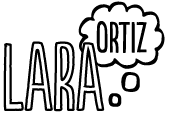 It seems like something’s in the air on the job front this time of year. Maybe it’s the approaching holidays, and the perceived ticking time clock on seizing that new opportunity before New Zealand’s annual Christmas exodus and subsequent doldrums. The Movings/Shakings column in StopPress is full as ever, and even I’m tempted to jump on the bandwagon, if only to avoid the creeping sense of FOMO I’m getting from all the news.
It seems like something’s in the air on the job front this time of year. Maybe it’s the approaching holidays, and the perceived ticking time clock on seizing that new opportunity before New Zealand’s annual Christmas exodus and subsequent doldrums. The Movings/Shakings column in StopPress is full as ever, and even I’m tempted to jump on the bandwagon, if only to avoid the creeping sense of FOMO I’m getting from all the news.
Several of the people in my circles who’ve been thinking about making the leap are choosing November to jump ship, and with this has come a barrage of LinkedIn alerts.
Former direct reports, bosses and colleagues are shining up their LinkedIn profiles. I’ve received a total of 7 requests in the past two months, some of which I was glad to attach my name to, and others that…well…others I haven’t…erhm…well, others I’d rather not address at all.
This got me thinking about the etiquette (and basic, screamingly obvious logic) of making reference requests. So for the punters, here they are.
Five rules of social networking for job seekers
- If someone fired you, they probably aren’t the best person to write you a recommendation about your skills as a [insert job you were doing when I, oops…they…fired you].
- If, upon your departure from a company, you chose to use the company Christmas party as your opportunity to publicly deliver to every colleague who ever worked closely with you a special, drunken holiday message containing personalized messages like, “your partner is way too old for you,” “you think you’re so awesome at everything, but really, you know nothing,” or “your shaved chest makes people think you’re gay,” it’s probably NOT a good idea to ask ANY of them to connect on LinkedIn, let alone ask for a recommendation.
- When asking for a recommendation, if it’s been awhile since you worked with the person, say 2 or 3 years, it helps to catch up a bit and fill them in on what you’re doing these days, lest they describe you as the raw and inexperienced talent you once were, instead of the polished and accomplished professional you are today.
- If you worked with someone and they really were good, like REALLY good, tell them that. Do them a solid and tell the world that. If you can, do it before they ever even ask. Good people are hard to come by, and while it’s not always easy to get a glowing written recommendation, there’s very little that’s as powerful as one from someone who is worth their salt, and knows you’re worth yours. Help foster your own network of great talent by cultivating connections between other great talent.
- The whole of your public online identity exists on the web for everyone to see. I know we’ve heard this a million times before, but if you aren’t fond of using the privacy settings on your social media profile, and your soon-to-be-boss is subjected to drunken photos of a triple-kiss between you and your two besties at Ultra, you deserve what you get—whether that’s a sad, skinny rejection letter or an offer of employment by the shadiest boss ever for a way fatter salary than you know you’re worth.
This blog is relatively new, so I won’t pretend I’m expecting lots of comments yet, but for future readers (I know I’ll grab you one day), what experiences have you had with social networking while you or a former colleague were hunting for a new job? Do you have any good ones to add to this list?


